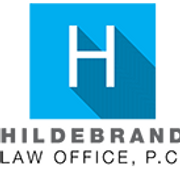
When a child’s biological parents are absent or unable to properly care for them, other family members often step in to provide a safe and loving home. While this might begin as a temporary situation, the parties involved may wish to make it more permanent. In these cases, relative adoption could offer a solution. Here's a closer look at the key aspects involved in this family option.
What Is a Relative Adoption?
Relative adoptions form a legal parent-child relationship between the child and a close family member. This will allow medical and educational decisions to be made on the child’s behalf and entitle them to inheritance and insurance benefits.
Georgia family law requires that the adoptive parent be related to the child either by blood or marriage and fall into the category of grandparent, great-grandparent, aunt, uncle, great aunt, great uncle, or sibling. There are several circumstances that can lead to a relative adoption, such as deceased parents, teenage pregnancy, substance abuse, child abuse, abandonment, or incarceration.
Why Are Relative Adoptions Beneficial?

When there’s a willing and capable family member available, being adopted is typically in the child’s best interest. Having a bond that’s already been established can help make the transition more seamless and provide a greater sense of security and stability. Additionally, children who live with extended family are given the opportunity to maintain a connection to their heritage.
How Does the Adoption Process Work?
Although the process for adopting a relative tends to be more streamlined than other types, it’s still a legal proceeding with specific rules and regulations. The first step is terminating the birth parents’ rights. Living parents can provide written consent volunteering to give up their rights. However, if they refuse, adoptive parents must show grounds to proceed.
Next, the court may order a preplacement investigation to assess the home environment. Once the relative is legally free to adopt, an adoption petition must be filed. This will need to include a criminal background and a home evaluation. As long as the court doesn’t have any concerns, the case will be finalized with a hearing.
If you’re interested in adopting a relative, turn to Hildebrand Law Office P.C. for expert legal guidance in Northwest Georgia. This locally owned and operated practice focuses on resolving family law matters as smoothly as possible by providing high-quality, personalized representation. Attorney Jennifer E. Hildebrand is a trusted lawyer who has helped a wide range of clients throughout Walker County, GA, achieve their adoption goals. Call (706) 638-6009 to schedule a consultation, or visit her website to learn more about the firm's services.
About the Business
Have a question? Ask the experts!
Send your question

